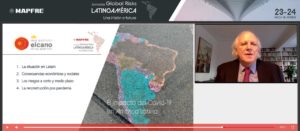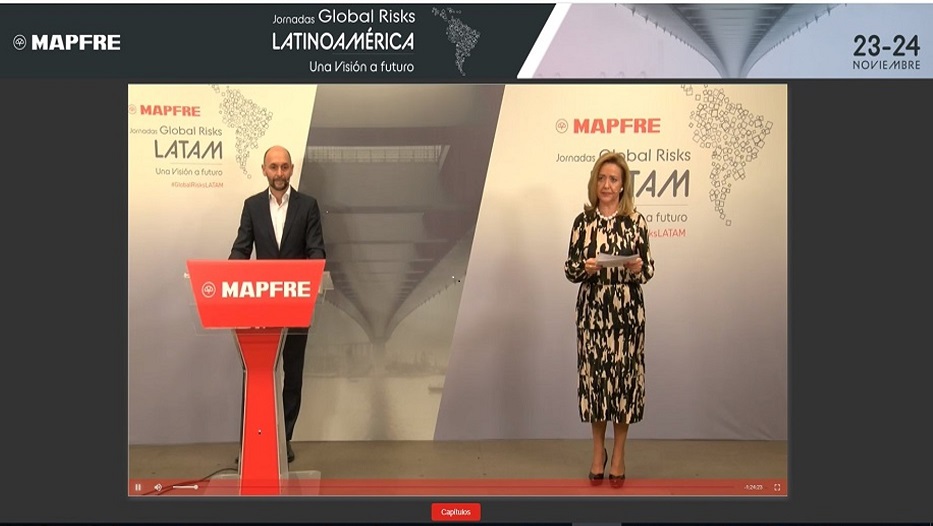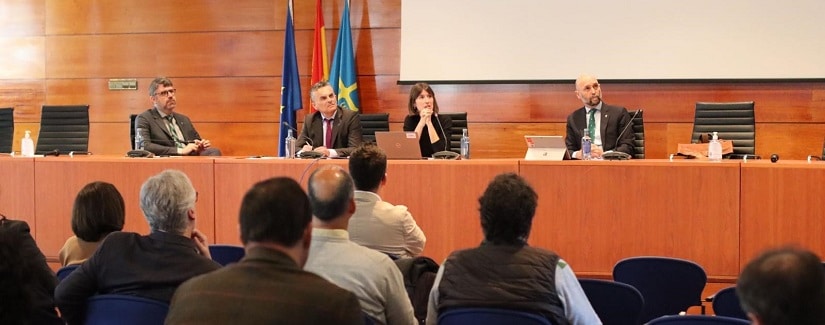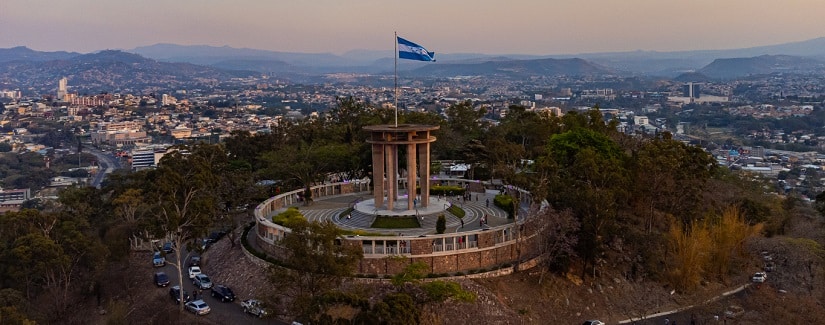MAPFRE holds the first session of the Global Risks Workshop for Latin America, a benchmark event for the major risk insurance market.
Yesterday Bosco Francoy, CEO of MAPFRE Global Risks, inaugurated the Global Risks LATAM Workshop, which is currently being held virtually. He started with a few warm words for our colleagues in Central America, who were recently affected by hurricanes ETA and IOTA.
 Bosco’s speech focused on three relevant issues. The first of these was MAPFRE’s work in the fight against COVID-19, for which, he said, the Group has raised €200 million in 27 countries from various support actions. The second pillar was the economic outlook for 2021 in the different regions, an analysis based on the latest report presented by MAPFRE Economics, with special emphasis on Latin America. And as a third and final topic, Bosco explained MAPFRE’s Value Proposition for the Global Client, which is implicit in the slogan “Excellence in the technical and operational management of Global Risks,” and which is based on 4 main pillars: specialization in global risks, customer-centered management, agility and flexibility, and long-term commitment.
Bosco’s speech focused on three relevant issues. The first of these was MAPFRE’s work in the fight against COVID-19, for which, he said, the Group has raised €200 million in 27 countries from various support actions. The second pillar was the economic outlook for 2021 in the different regions, an analysis based on the latest report presented by MAPFRE Economics, with special emphasis on Latin America. And as a third and final topic, Bosco explained MAPFRE’s Value Proposition for the Global Client, which is implicit in the slogan “Excellence in the technical and operational management of Global Risks,” and which is based on 4 main pillars: specialization in global risks, customer-centered management, agility and flexibility, and long-term commitment.After the CEO’s presentation, the first session of technical presentations began, moderated by Paola Serrano, CRMO LATAM and International.
Damage: leading from sustainability and in the long term
 The first presentation from yesterday’s workshop was given by Cristina Peral, Head of Damage Underwriting, who reviewed the reasons that have led to the current tightening of the market, the result of losses in recent years and uncertainty about the future.
The first presentation from yesterday’s workshop was given by Cristina Peral, Head of Damage Underwriting, who reviewed the reasons that have led to the current tightening of the market, the result of losses in recent years and uncertainty about the future.She also commented on the uneven impact of the crisis resulting from the pandemic on different sectors, and the evolution of premiums and rates experienced by different countries.
In her final message, Cristina stressed that MAPFRE wants to continue to work with its clients by leading insurance programs from a perspective of sustainability and long-term relationships, making the MAPFRE network of companies in Latin America available to clients and brokers.
Risk engineering: It’s time for differential services
 For his part, Oscar Estrada, Head of the Engineering Service of MAPFRE Global Risks, presented the new Product Catalog, focused on providing value-added services to policyholders.
For his part, Oscar Estrada, Head of the Engineering Service of MAPFRE Global Risks, presented the new Product Catalog, focused on providing value-added services to policyholders.As Oscar explained in his presentation, the Catalog is based on 4 blocks, focusing on aspects such as risk control, knowledge transfer through the expertise of engineers, and the provision of consulting and specialized services, all focused on achieving risk improvement and generating long-term trust.
Construction: a driving force for reactivation
 The presentation was followed by Zaida Ruiz, Head of Subscription, Construction and Assembly.
The presentation was followed by Zaida Ruiz, Head of Subscription, Construction and Assembly.Zaida reviewed the series of major claims that took place between 2018 and 2019, some of which were Cat-based and others not, and which resulted in many companies that previously underwrote these lines ceasing to do so, reducing insurance capacity and tightening underwriting policies. In this sector, according to Zaida, like in Damages, there has also been a restriction in appetite and coverage.
In this context, Zaida pointed out that MAPFRE Global Risks will focus on reducing the loss ratio by working closely with risk managers and their advisors, and she highlighted the importance of working with our clients until the end of their projects, contributing to the search for alternative solutions to replace the capacities that have disappeared.
After the presentations, the Q&A session was held with the speakers. Questions were sent in by some of the more than one thousand attendees following the virtual workshop.
The Workshop will continue today with technical presentations by the Energy, Transport and Aviation lines, and also a speech by José Antonio Arias, Chief Innovation Officer of MAPFRE. It will be closed by Aristóbulo Bausela, the Group’s CEO LATAM.
We remind you that we will be sharing all the information and documentation from the event on the MAPFRE Global Risks website, under the Events section, in the Global Risks Latin America Workshops space.
Latin America, opportunities on the road to reconstruction
 As a guest speaker, Carlos Malamud, lead researcher at the Elcano Royal Institute and professor of American History at the National Distance Education University (UNED) was in charge of closing yesterday’s session.
As a guest speaker, Carlos Malamud, lead researcher at the Elcano Royal Institute and professor of American History at the National Distance Education University (UNED) was in charge of closing yesterday’s session.Malamud provided an overview of the socio-economic impact of the outbreak of the pandemic in Latin America, a region which he underlined was already experiencing a difficult situation at the beginning of 2019.
Malamud commented on the main social, economic and health risks linked to geopolitical and other purely political factors in the region, and outlined the economic prospects for the region in the short and medium term.
Finally, Malamud indicated that the paths to post-pandemic reconstruction would also open up great opportunities in the region, because they would bring with them the need to build new infrastructure, to further promote digitization for telecommuting, tele-education and telemedicine in the region, as well as biomedicine and the circular economy.




